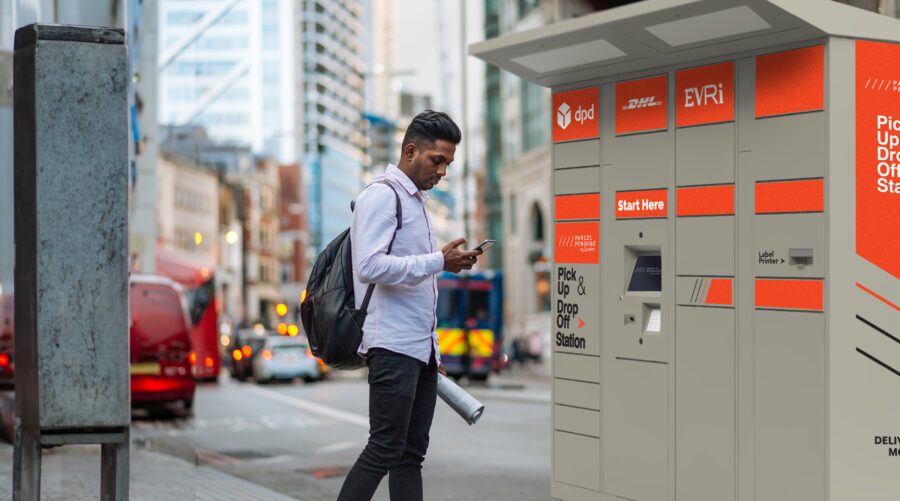
Multifamily
How Property Management Duties are Evolving
Written by: Parcel Pending
5 Min Read
Published: April 16, 2020
Updated: April 3, 2023
Are you a property owner looking to hire a property manager?
Property management is no longer just about collecting rent, filling vacancies or handling maintenance and repairs. The property manager job description and daily operations have evolved significantly over the last decade. In this article, we will explore how day-to-day property management responsibilities have changed over the years.
Collecting Rent & Security Deposits
It’s all about the money! One of the main property manager duties is to collect rent and security deposits. Property owners and managers establish the rent level based on the market, property location, and type of residents they would like to attract. They also manage the cash flow of the property.
Conducting Credit Checks & Background Checks
Property managers are responsible for screening tenants. This includes conducting credit checks and background checks to ensure that they’re in good financial standing.
Attracting Tenants
A property manager’s most important job is to ensure that vacant properties are filled. This is where advertising, marketing, and communication skills come into play. It’s not just about good-looking real estate and a competitive rental rate anymore. Property managers need to think outside the box to attract tenants and make sure vacant properties are filled as quickly and efficiently as possible.
Generating Revenue
Investors and property owners are constantly searching for ways to increase ROI. As Multifamily Executive states, “we’ll see owners and operators return their focus to controlling, reducing, and aggregating costs. Additionally, finding new ways to maximize ancillary income through sound processes and creative revenue streams such as door-to-door trash pickup, alarm systems, and washer/dryer rentals will become a competitive advantage.” Property managers can also consider smart package lockers as an effective way to satisfy residents while also generating revenue. Package lockers allow residents to pick up their packages at their convenience while helping property managers to streamline management duties and responsibilities to reduce operational costs.
Leveraging a Human-Centric Business Model
According to Multifamily Executive, consumers value experiences. From the experience of getting your morning coffee at a local cafe to staying in a hotel on a business trip, brands are working to create the ultimate experience for consumers in order to gain their loyalty. Additionally, we all have basic, human instincts and needs that will never change, even if technology evolves to serve those needs in new ways. So what does this mean for property management? It means property managers need to focus on connecting with residents, providing a valuable and unmatched experience in addition to meeting people’s basic needs. Property management will become increasingly focused on serving up instant gratification to residents. Property managers should be prepared to answer the call with desired amenities like smart package lockers, pop-up stores and restaurants, co-working spaces, spas and more.
Managing Maintenance & Landscape
From maintenance and repairs to landscaping and renovations, property managers need to be able to keep properties safe and habitable. They can either do the job themselves or hire outside resources to do so. Most property managers have access to a network of reliable contractors, plumbers, carpenters, and electricians to help them with repairs, maintenance, and landscaping.
Providing Desirable Amenities
About 90% of the U.S. population will connect to the grid via smartphones by 20231. A manager can’t expect to succeed in 2030 (or even now!) without tapping the power and innovation of technology for use at the property. Instead of being an add-on accessory, technology will become the focal point of the multifamily housing industry. In fact, experts predict that technology will become the main tactic utilized by multifamily housing communities to enrich their residents’ experiences.
One example is electronic package lockers. Package volume has nearly doubled (48%) over the past two years, due in large part to the boom in online and mobile shopping. This number will only continue to grow: PWC estimates the number of packages delivered annually will rise to 16 billion this year, up from 11 billion in 20182.
Parcel Pending’s multifamily locker apartment solutions alleviate the stress of package management by assuming all customer service responsibilities for package delivery, notification and retrieval. Our commercial lockers help properties manage their package problems efficiently and cost-effectively, so it’s a win-win for both residents and property managers.
With our intelligent parcel locker system, residents can quickly and easily retrieve their packages at their convenience. Meanwhile, property managers no longer have to waste precious time accepting, logging, sorting and distributing packages. In fact, it is estimated that our lockers help save up to 24 hours of staff time each week. That’s a huge savings when it comes to operational costs.
The Parcel Pending Difference:
- Smart – Infrared scanners detect and categorize the packages in each locker.
- Secure – Photo capture comes standard with optional cloud-based video surveillance.
- Contact-free – scan a barcode or use our Bluetooth-enabled mobile app.
- Cool – Refrigerated lockers keep temperature-sensitive items cool.
- Courier Agnostic – 100% deliverability from all couriers.
- Convenient – 24/7 package access for residents.
- Mobile-Friendly – Delivery notifications sent to your residents’ phones.
The Parcel Pending process is simple. Recipients are instantly notified by text, email or app notification when they have a delivery. Once a notification is received, the recipient can pick up the package using the unique code provided in the notification or by using the convenient mobile app. Residents can scan a barcode or use the Bluetooth-enabled mobile app to open locker doors without having to use a touchscreen or keypad. Property managers no longer need to sign for, sort, or distribute packages to residents.
Mastering Budgeting
Property managers are responsible for the property’s overall budget as well as maintaining records. In most cases, property managers have a set budget and must stay within that budget as they make improvements, order repairs, etc.
Overseeing Tenant Moves
According to Landlordology, when a tenant moves out, the property manager handles the post-move-out walkthrough. They assess potential issues and deduct repairs beyond normal wear and tear from the security deposit. The manager also cleans, repairs, and refreshes the rental unit for the next resident.
For more insights on property management solutions and multifamily market trends, visit Parcel Pending today.
How do you think technological advances, the need to attract and retain residents, while adapting to meet “today’s residents’” needs have changed property management duties? Comment below and let us know what you think!
Sources:
- World Economic Forum’s “Deep Shift Technology Tipping Points and Societal Impact” report. Available at: http://www3.weforum.org/docs/WEF_GAC15_Technological_Tipping_Points_report_2015.pdf
- Laseter, T., Tipping, A., & Duiven, F. Strategy + Business. The Rise of the Last-Mile Exchange. (2018, July 30). https://www.strategy-business.com/article/The-Rise-of-the-Last-Mile-Exchange?gko=d0a62.



